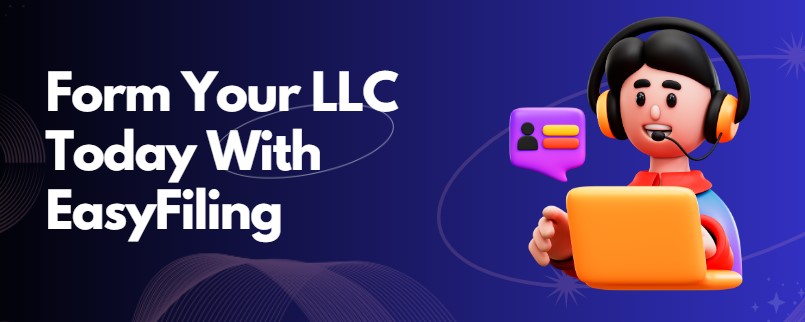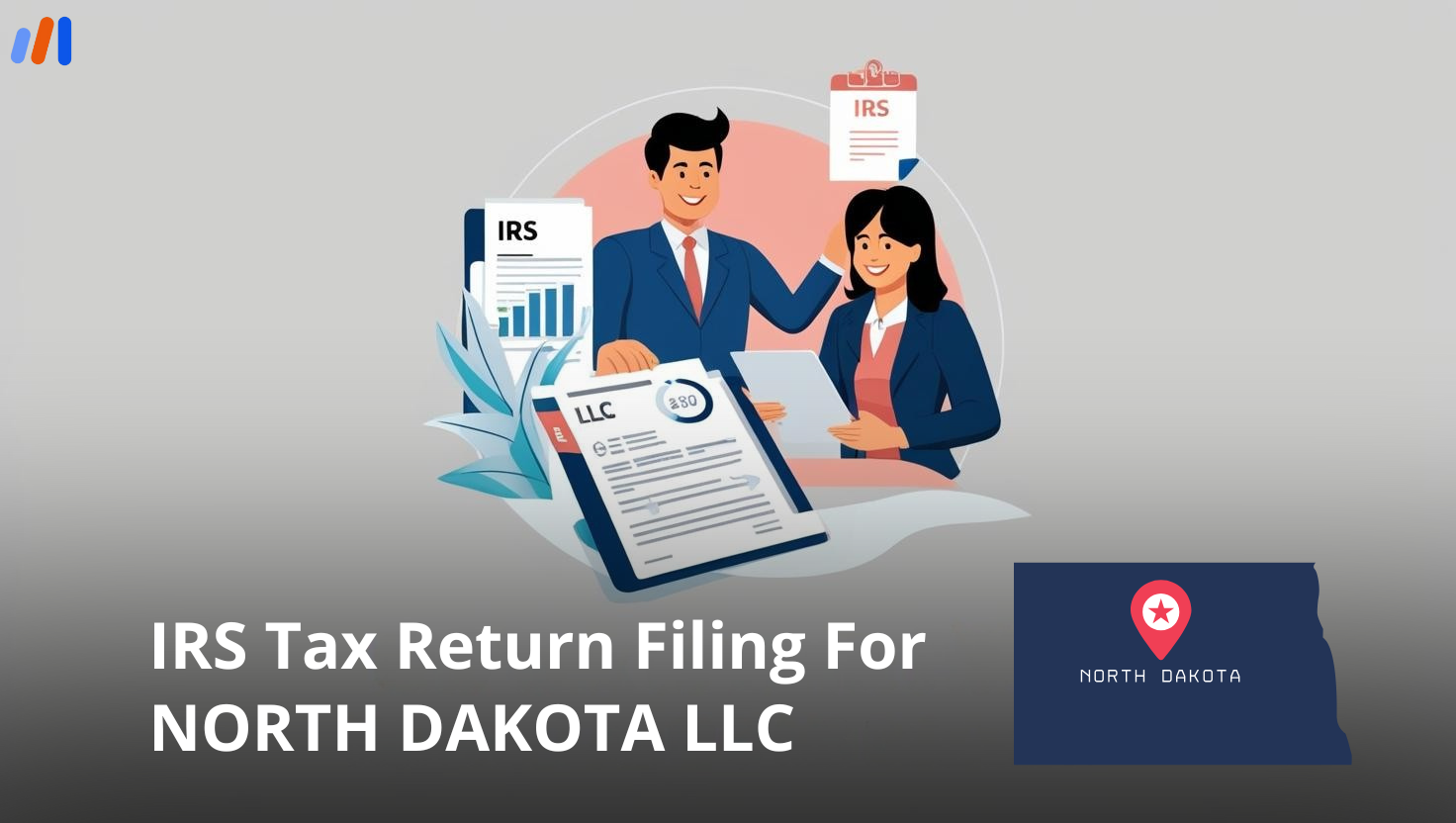Creating a business in the U.S. can be challenging. When setting up your business as a non-resident, you may need clarification on what type of company to set up and how to do it. One common choice for many non-US about which entity best suits their needs is the limited liability corporation (LLC).
This article will give you an in-depth idea about the advantages of LLCs. After reviewing this article, you should determine whether LLC formation is your best bet, considering your business.
What Is an LLC?
LLC is a versatile and hybrid business entity that combines the characteristics of corporations with partnerships or sole proprietorships. It provides limited liability protection to its owners, who are called members, meaning they can’t be held personally liable for the company’s debt or liabilities. This structure also has operational flexibility and tax benefits making it a popular choice among many entrepreneurs.
Why Form an LLC?
1. Limited Liability Protection:
One of the primary reasons why people form an LLC is to protect their assets. In an LLC, members’ private property cannot be used as collateral for the organization’s debts and obligations. When a company like an LLC incurs debts or is sued, creditors cannot go after member’s assets such as their homes, cars, and their personal bank accounts in most cases. This type of financial security is one of the advantages over general partnerships and sole proprietorships where owners risk losing their belongings to pay off any owed amounts.
2. Tax Advantages:
An advantage of being taxed as an LLC is flexibility. Income from these entities passes through to its members who report it on their tax returns by default; thus avoiding double taxation which applies whenever a corporation pays taxes on earnings generated then subsequently shareholders pay tax on dividends received from such companies. Additionally, if it were more beneficial, these groups could choose for corporate treatment in either S corporations or C corporations.
3. Flexibility in Management:
LLCs do not have some requirements like boards of directors, annual meetings, or maintenance of extensive records as there are no specific legal provisions regarding them, unlike corporations. Members are therefore free to run the company according to what they think best suits them hence this flexibility in management. These may either be self-managed (member-managed) or manager-managed deeds where managers bear responsibility for day-to-day operations.
4. Credibility and Trust:
Having “LLC” in a business name can enhance credibility with customers, vendors, and potential partners. This signifies that the company is legally organized and has committed itself to certain levels of operational and legal standards. For start-ups looking to establish trust and build a reputation in their industry, this can make a huge difference.
5. Ownership Flexibility:
Ownership flexibility is one of the key characteristics of LLCs since there are no limitations as to members or types of membership. LLCs have members who could be natural persons, corporations, other limited liability companies (LLCs) from within, or even entities that operate in foreign states. Joint ventures or family-owned enterprises among others can therefore greatly benefit from the use of LLCs for different business situations.
LLC for Non-Residents
Non-residents can form an LLC in the United States with all the benefits available to residents. This includes engaging in business activities inside the U.S., benefiting from favorable tax laws, and enjoying strong legal protections offered by America’s legal system. Thus, establishing an LLC provides non-residents with an opportunity to make a presence in the American market, expand their existing operations, or protect personal property.
1. Access to U.S. Markets:
An LLC allows non-residents access to US markets which may be worth exploring due to its size and profitability. It can enable businesses to target an increased clientele base; setting up new partnerships or exploiting different economic opportunities within US borders do so easily only if they consider that alternative embracing diversity as well as distinctiveness.
2. Attractive Taxation Treatment:
The United States of America has many tax incentives and treaties that can be useful to international businessmen. Non-residents may reduce their tax bills by forming LLCs and enjoy associated benefits.
3. Legal Protection:
There are extensive protections for businesses and their owners in the US legal framework. Nonresidents, on the other hand, have an opportunity to take advantage of this protection through the formation of LLCs to enjoy benefits such as limited liability, intellectual property rights, and contract enforcement among others.
Why is Wyoming the best state to form LLCs?
With its favorable business climate and many benefits, Wyoming is a popular state for forming LLCs. Here are some of the major advantages of starting an LLC in Wyoming:
1. Reduced Costs:
Wyoming has among the least expensive firm structures and yearly fees for any LLC in America. Hence, the expense of creating an entity like this in Wyoming is much less than in most other states, which makes it appealing to start-ups that want to cut down on their initial costs.
2. Strong Asset Protection:
Wyoming has stringent asset protection laws, which protect LLC members’ personal belongings. Due to these qualities, one can open a business company here for additional security reasons.
3. No Taxes from States:
The State of Wyoming does not demand any corporate income tax from its citizens who operate businesses there as well as they do not pay franchise or personal income taxes. This results in substantial savings for such firms allowing them to put more money back into operations
4. Privacy:
It does not require a recording of LLc members’ names by the public means that it never lists the names of its members on its public registry either; therefore, secrecy regarding ownership remains with the owners themselves and one would know about them since the information is not available in any public domain.
5. Business-Friendly Environment:
Wyoming has always been known for being pro-business since time immemorial. They have a stable regulatory regime; supportive legal framework as well as excellent customer service around business filings while strong legal precedents and protections that have taken many years to develop.
10 Benefits of Forming an LLC in the US
1. Limited Liability Protection
One significant advantage associated with limited liability companies (LLCs) is that they offer personal liability protection against business debts and lawsuits for their members if the debt were incurred or litigation was initiated against such businesses where they were incorporated then normal situations indicate that such actions may be brought only against those businesses and not against the owners who run them. This safeguards an LLC’s owners from putting their assets at risk if their business is ever sued or they are unable to pay back its debts.
2. Taxation Pass-through
Pass-through taxation of its members, which means that the businesses themselves are not taxed, but instead the profits and losses are reported on their tax returns to avoid double taxation faced by corporations. In this regard, taxation allows individual members to save quite a significant amount of taxes that could be relevant for small businesses and startups.
3. Less Requirements
It does not matter whether there are boards of directors or annual meetings because there is no such requirement for filing a report with them unlike in the case of corporations. For example, one can operate as they please and adapt quickly to changes rather than being forced to follow strict regulations as required by other types of companies. The LLCs can operate with simplified structure making it easier for small businesses and family firms.
4. Credibility & Trust:
This gives credibility which is important among customers, vendors, partners, etc.; people would trust more established-looking companies like this. Such credibility is essential for attracting new clients; signing contracts; establishing long-term relations etc., since an enterprise that has put “LLC” in its name indicates higher professionalism and compliance with legislation.
5. Ownership Flexibility:
One of the advantages of an LLC is that it can have as many members as possible because even corporations or other LLCs can be members. This flexibility therefore allows companies to choose the best strategy on how they want to own such business, be it a one-member LLC or a partnership with several members.
6. Easy to Form and Maintain:
LLC formation is straightforward and entails less paperwork than establishing corporations, which leads to lower costs overall. The registration process is available online in most states for convenience purposes. Additionally, LLCs require less ongoing compliance compared to corporations, making them easier to maintain later on.
7. Privacy Protection:
Some states, like Wyoming and Delaware, do not require LLCs to disclose the names of their members, providing an additional layer of privacy for business owners. This privacy protection can be particularly important for individuals who prefer to keep their business interests confidential or who are concerned about potential harassment or litigation.
8. Perpetual Existence:
Unlike a sole proprietorship, which ceases to exist upon the owner’s death or withdrawal, an LLC can continue to operate, providing stability and continuity. This perpetual existence can be important for businesses that plan to operate for many years or that want to ensure a smooth transition of ownership in the event of a member’s departure.
9. Flexible Profit Distribution:
LLCs can decide how profits are distributed among members, which can be based on any agreed-upon formula and is not necessarily tied to ownership percentage. This flexibility allows businesses to structure profit-sharing arrangements that reflect the contributions and agreements of the members.
10. Access to Capital:
LLCs can raise funds by adding new members or selling membership interests, providing greater opportunities to attract investors and access capital for growth. This access to capital can be critical for businesses looking to expand, invest in new projects, or weather financial challenges.

Conclusion
Forming an LLC in the United States offers numerous advantages, from liability protection and tax benefits to operational flexibility and credibility. The flexibility in ownership, ease of formation, and privacy protections make it an attractive option for both domestic and international entrepreneurs. Whether you are starting a new business, looking to expand, or seeking to protect your assets, an LLC provides a robust and adaptable structure to help your business thrive.
At easyfiling, we can simplify the process of forming an LLC. We provide a smooth process and guide you through each step from choosing the best state to file to preparing the necessary documents and paperwork. We ensure a smooth and effective process, allowing you to focus on growing your business. Our expertise and assistance will in navigating the complexities of LLC.
Frequently Asked Questions (FAQs)
Can an outsider set up a Limited Liability Company in the U.S.?
Non-residents can establish LLCs and enjoy similar protections and benefits as residents.
How does an LLC get taxed?
LLCs are subject to pass-through taxation, which means that their earnings and losses are reported on the individual tax returns of their members.
Is it necessary to consult a lawyer when forming an LLC?
Although not obligatory, getting advice from a legal expert will ensure all statutory formalities are adhered to and that the partnership agreement is properly prepared.
What distinguishes an LLC from a corporation?
An L.L.C. provides more room for management flexibility compared to a corporation with a relatively lower number of requirements or formalities yet still having limited liability protection meanwhile corporations have unique advantages in capital raising as well as claimed legal precedents.
Why should one form an LLC in Wyoming?
Wyoming has many advantages including low fees, strong asset protection, no state taxes, anonymity, and a pro-business environment making it a great choice for entrepreneurs.
File Your LLC Today
25$ off with a coupon
Lock in EasyFiling's transparent rates and get lifetime compliance support at no extra cost.
Get Started Now







